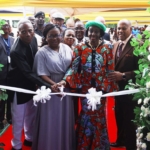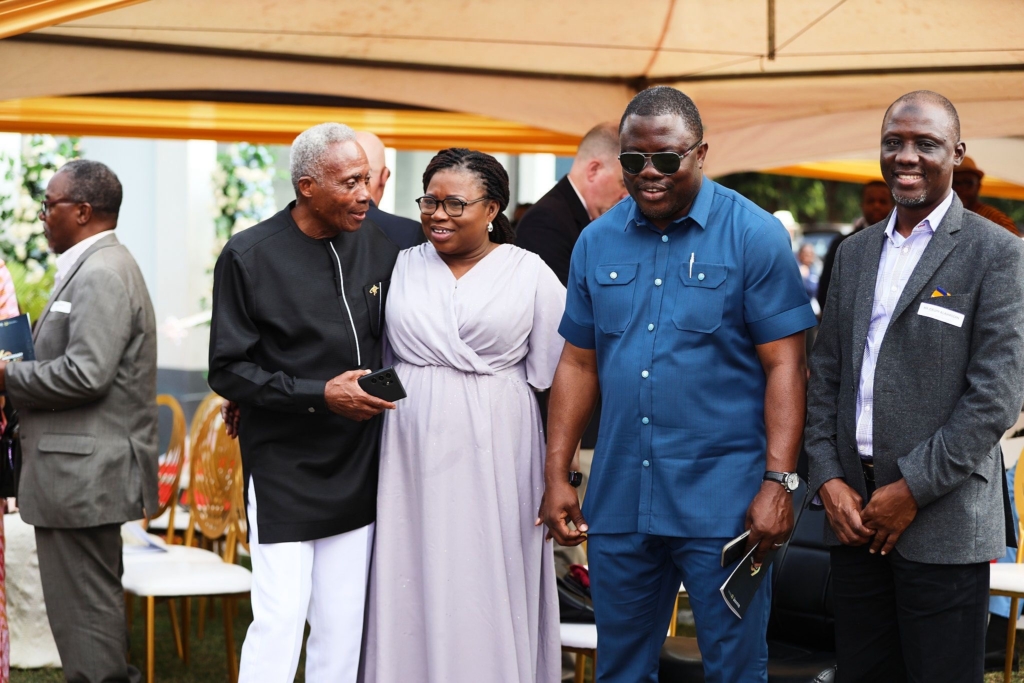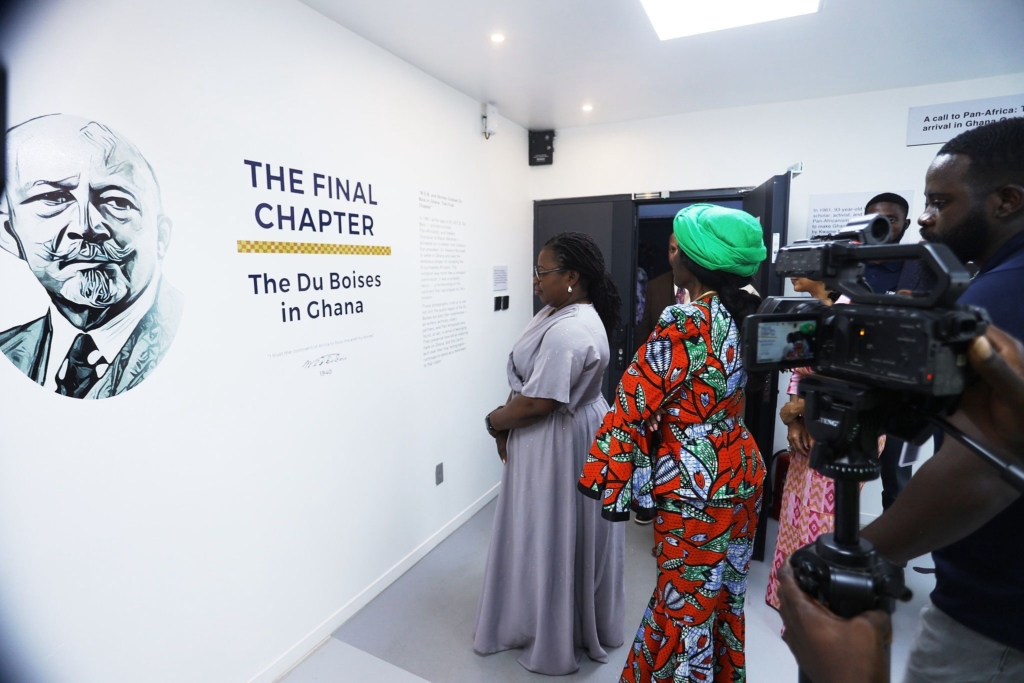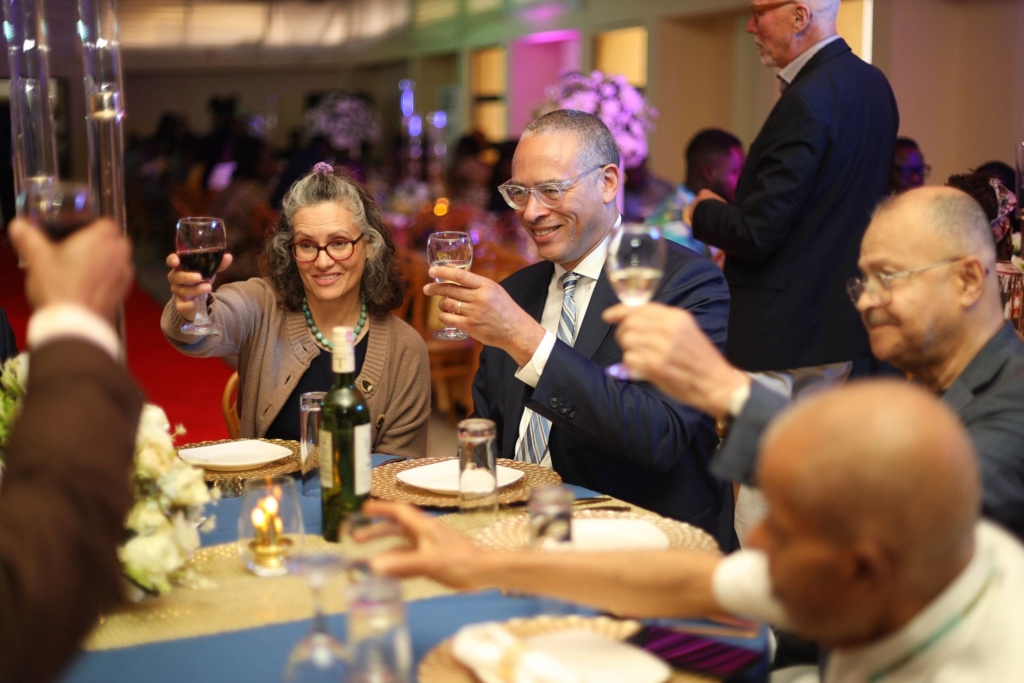
The W.E.B. Du Bois Museum Foundation hosted a solemn yet inspiring commemoration to mark the 62nd anniversary of the passing of Dr. W.E.B. Du Bois.
Under the theme “Du Bois Lives On: The Journey Ahead,” the event brought together dignitaries, scholars, diplomats, and members of the Du Bois family to honor the life and enduring legacy of one of the world’s greatest intellectuals and Pan-Africanists.
The keynote address, delivered by the Deputy Minister for Tourism, Culture, and Creative Arts, Yussif Issaka Jajah, on behalf of his Minister, Abla Dzifa Gomashie, hailed Du Bois as “a towering intellectual, a freedom fighter, and a cultural icon.”
He further underscored the government’s resolve to advance the redevelopment of the Centre as a lasting tribute to Du Bois’s legacy.
He noted:“The theme of this anniversary, ‘Du Bois Lives On: The Journey Ahead,’ reminds us that Du Bois’ enduring vision of unity, equality, and human dignity remains as urgent and relevant today as it was in his time.”
Dr. Kofi Boateng, Master of Ceremonies and CFO of the W.E.B. Du Bois Museum Foundation in his reflective remarks, shared the symbolism of the day’s black and white attire, a cultural signifier of mourning and respect, and highlighted the Foundation’s collaboration with the Library of Congress to preserve Du Bois’s personal library of over 1,500 books.
He then read from Du Bois’s last letter to Ghana, a moving farewell penned in 1957 and opened only upon his death in 1963:“I have loved my work, I have loved people, and my play. But always I have been uplifted by the thought that what I have done well will live long and justify my life… One thing alone I charge you as you live, believe in life. Always human beings will live and progress to greater, broader, and fuller life.”
Mr. Japhet Aryiku, Executive Director of the W.E.B. Du Bois Museum Foundation welcomed attendees and emphasized the Foundation’s mission of transforming the Centre into a world-class museum and Pan-African hub.
He also read a message on behalf of Mr. Daniel Rose, Chairman of the Foundation’s Board, who praised Du Bois as “the most prominent and influential African American in history” and underscored the Foundation’s commitment to restoring the Centre through a joint agreement with the Government of Ghana .
Scholarly Reflections
Moderated by Japhet Aryiku, the panel featured eminent scholars who reflected on Du Bois’s life, scholarship, and global impact.
Dr. Shawki Kujo-Haffar emphasized Du Bois’s enduring Pan-African legacy, warning against the “absence of committed leaders” today but highlighting opportunities such as the new Du Bois Museum as “a monumental start in the preservation of Pan-Africanism.”
Dr. David Levering Lewis, Pulitzer Prize-winning biographer of Du Bois, traced his intellectual contributions, from The Philadelphia Negro (1899) to Black Reconstruction in America (1935).
He reminded attendees that Du Bois’s work had long been undervalued in U.S. academia but now stands as foundational scholarship in history and sociology .
Dr. Jonathan Holloway, President of Rutgers University, drew from Du Bois’s writings and the symbolism of the Sankofa bird at his tomb.
He linked the diasporic “return home” experience to Du Bois’s own Pan-African journey, stressing the enduring tension between history, memory, and belonging .
Dr. Phil Sinitiere reflected on Du Bois’s intellectual and familial networks, including Shirley Graham Du Bois and adopted son David Graham Du Bois. He shared archival condolences from 1963–64, including one declaring: “Thank you for loving Dr. Du Bois. Thank you for cherishing and caring for him.”
Nikole Hannah-Jones, Pulitzer Prize-winning journalist and author of The 1619 Project, spoke passionately about Du Bois’s impact on her own work:“No single thinker, writer, or scholar has had more of an impact on my own thinking as a writer, as a researcher, as a Black person, and as a Pan-Africanist as Du Bois has.”
Drawing parallels between Du Bois’s Black Reconstruction and her own project, she argued that both faced backlash because they “centered Black people in the American story.”
Wreath-Laying Ceremony
Following the panel, dignitaries gathered at the tomb of Dr. Du Bois for a solemn wreath-laying ceremony.
Tributes were offered in the following order: The Government of Ghana — represented by Yussif Issaka Jajah, Deputy Minister for Tourism, Culture and Creative Arts, the Du Bois Family — represented by Mr. Jeffrey Peck, great-grandson of Du Bois, and Dr. Whitney Battle-Baptiste, the W.E.B. Du Bois Museum Foundation — led by Japhet Aryiku, Executive Director.
Exhibition Opening
The afternoon continued with the ribbon-cutting ceremony for the exhibition “The Du Boises in Ghana.” The ribbon was cut by Lydia Lamisi Akanvariba, Minister of State for Public Sector Reforms and MP for Tempane, accompanied by former First Lady Nana Konadu Agyeman-Rawlings and Japhet Aryiku, Executive Director of the W.E.B. Du Bois Museum Foundation.
Guests were then led on a guided tour of the exhibition, which offers rare insights into the lives of Dr. Du Bois and Shirley Graham Du Bois during their years in Ghana.
Commemorative Dinner
The day concluded with a dinner featuring music, and a welcome toast.
It was a moment of fellowship and reflection, celebrating not only Du Bois’s intellectual legacy but also his vision for Pan-African solidarity and unity.
More than a memorial—the event was a reaffirmation of Du Bois’s living legacy. Through speeches, wreath-laying, scholarship, and cultural exchange, the event underscored the urgency of his call for Pan-African unity and justice.


